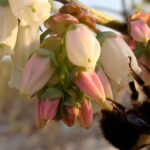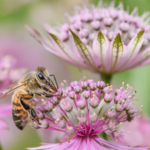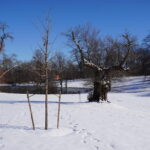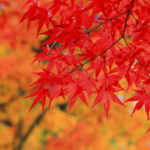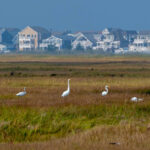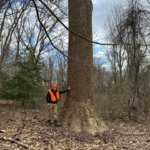A team of researchers led by Rutgers University-New Brunswick scientists has analyzed crop yields of more than 1,500 fields on six continents, and found that production worldwide of important, nutritionally dense foods such as fruits, vegetables, nuts and legumes is being limited by a lack of pollinators. The results, detailed in Nature Ecology & Evolution, showed that across […]
Ecology, Evolution and Natural Resources
Distinguished Professor Emeritus Steven Handel Honored as a Distinguished Fellow of the BSA
Steven Handel, Distinguished Professor Emeritus of Ecology and Evolution, was recognized as the 2024 “Distinguished Fellow of the Botanical Society of America (BSA),” on June 19 at the Botany Society conference held in Grand Rapids, MI. The highest honor bestowed by BSA, Distinguished Fellows are chosen based on their outstanding contributions to the mission of the scientific […]
Rutgers Ecologist Helps Develop Novel Habitats to Aid Proliferation of Bees
Novel structures designed to aid the proliferation of wild, native bees – key pollinators for the food supply Rutgers ecologist Kimberly Russell is the lead researcher on an unusual project that, if successful, will soon allow her to share the idea throughout New Jersey and beyond: the installation of “bee bunkers” and “bee hotels” in […]
New Oak Trees Take Root on Cook Campus
Passion Puddle has served as the center of countless Ag Field Days, now Rutgers Day, and graduation ceremonies for generations of students on the Cook College campus. The lawn surrounding this beloved pond provides a relaxing place to study, relax, or people-watch on many a warm spring or fall afternoon. It is, quite simply, the […]
With Global Ambitions, Rutgers Engineers and Scientists Launch Wind Energy Research Center
Multidisciplinary collaboration involving three schools and multiple departments will combine efforts of environmental and marine scientists as well as engineers A Rutgers research project focused on offshore wind energy is poised to make New Jersey a global leader in the field in a little more than a decade. The effort being launched by Rutgers researchers […]
Brooke Maslo Helps Develop Comprehensive Guide to Making Flood-Prone Areas More Resilient to Climate Change
For years, Rutgers ecologist Brooke Maslo has studied how to redesign flood-prone landscapes so they can best protect the communities they border from the ravages of swollen brooks and rivers and rising seas. State and federal programs that enable the acquisition of flood-prone properties from willing homeowners at fair market value and then clear the […]
Remembering Jim “Doc” Applegate (AG’64), Beloved Professor of Wildlife Ecology at Rutgers
Jim “Doc” Applegate, beloved professor of wildlife ecology at Rutgers, passed away on October 28. Jim’s connection to Rutgers spans more than four decades. He graduated with a bachelor’s degree in 1964 from the College of Agriculture. He went on to study avian malaria, earning master’s and doctoral degrees from Pennsylvania State University in 1968. […]
SEBS Professor Answers the Question: Why Do Leaves Fall?
What is the chemistry that causes all those beautiful hues to appear in the fall. Jason Grabosky, a professor and program director of Urban Forestry in the School of Environmental and Biological Sciences, explains the process that makes leaves change color, the factors that influence the shades that we see and the importance of simply taking the time […]
Rutgers Launches Climate and Energy Institute With Wide-Reaching Goals
Institute will combine and unify the strengths of three existing institutes on climate, environment and energy research University leaders are creating an institute designed to elevate the local, national and international profile of Rutgers–New Brunswick as a locus for scholarship on climate change, renewable energy production, energy conservation and their environmental dimensions. The Rutgers Climate and […]
Transfer Student Augustus Haas (SEBS’25) Exploring the Landscape of Urban Forestry
Among the faces on the Cook campus this fall is Augustus Haas, a transfer student looking to complete his undergraduate degree at Rutgers. He’s a junior in the Ecology, Evolution, and Natural Resources (EENR) major at the School of Environmental and Biological Sciences (SEBS). Augustus earned an associate’s degree in forestry at, a small private […]

